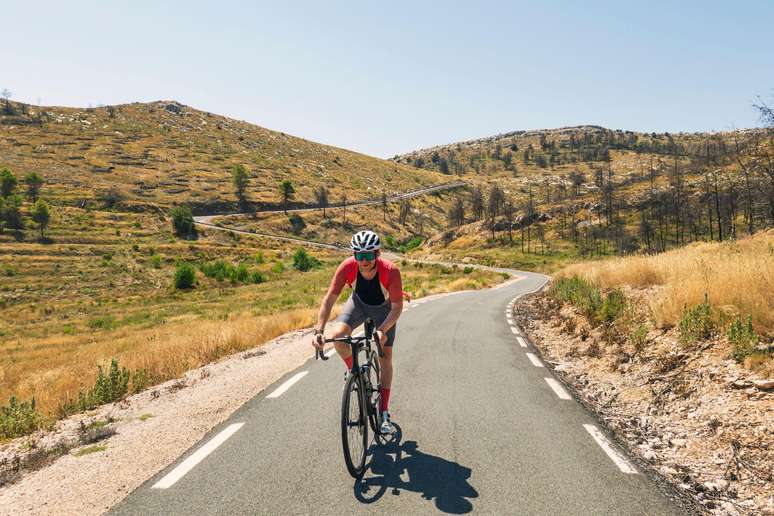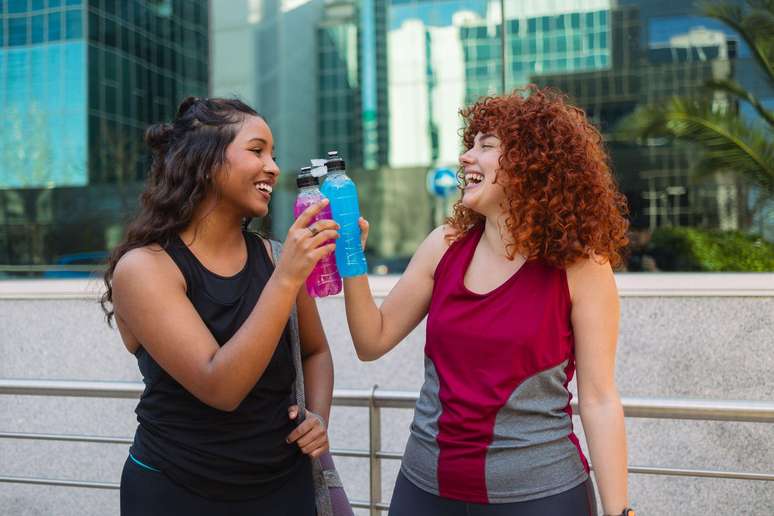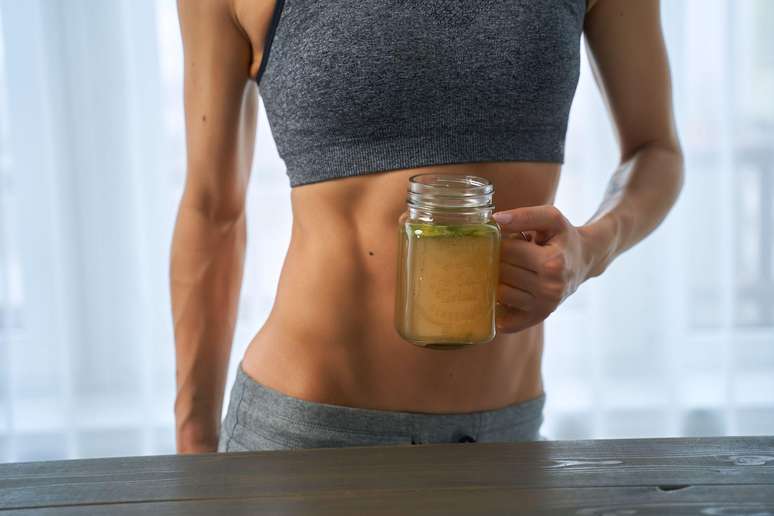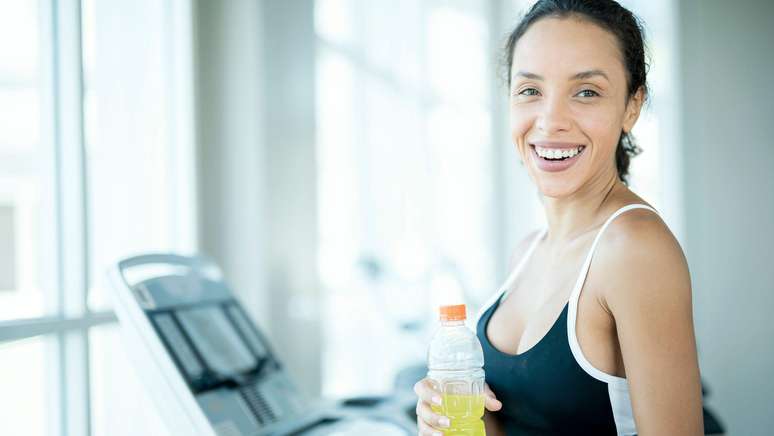With the number of hydrating drinks available on the market, it’s difficult to know what each one is for. Two experts provide some clarifications and recommendations.
Good hydration, as well as good nutrition, are essential for our health, experts say.
But with the large number of hydration products available on the market, many of which carry slogans like “better than water,” it’s difficult to know which form of hydration is most appropriate for us.
How to navigate the offer of oral serums, isotonic drinks and energy drinks that promise to hydrate us?
“When you’re not doing sports, water brings you the few minerals you need to hydrate,” sports nutrition expert Anna Grifols told BBC News Mundo. “Electrolyte drinks are formulated to replace what you lose through sweating.”
So, what criteria should we follow when choosing? When is it better to drink a drink with salts and when is a glass of tap water sufficient?
What are electrolytes

“Electrolytes are minerals that, when dissolved in water – in our blood and other body fluids – become electrically charged and allow our body to carry out vital functions,” Laura Jorge, founder and director of the Laura Jorge Centers for Nutrition, Psychology and Health, told BBC News Mundo.
“These include sodium, potassium, calcium, magnesium, chlorine, bicarbonate and phosphate.”
“Electrolytes help regulate fluid balance,” Jorge continues. “Sodium outside the cell and potassium inside.”
“They also allow the transmission of nerve impulses: calcium, sodium and potassium facilitate muscle contraction and relaxation.” “And they help keep blood pH stable.”
When it is necessary to replace electrolytes

The ion that is lost the most when we sweat is sodium, explains Grifols. That’s why when we exert ourselves continuously or in very hot conditions, replacing sodium “promotes hydration,” he explains.
“Otherwise you could become dehydrated, even if you drink water.” The degree of physical activity you are doing and the environmental conditions are excellent parameters to follow to know which type of hydration is best for you.
Laura Jorge says that, for sessions lasting less than an hour and of low intensity, water is sufficient.
But when your body starts to lose more fluids and salts, it’s best to make changes.
In winter many people can train for up to an hour and a half with just water; In summer or in very humid environments, it is useful to add electrolytes after 45 minutes, because sweating intensifies, explained Grifols.
And some types of people benefit more from replacing salts during physical activity: “If you have ‘very salty’ sweat – you can tell by white spots on your clothes or skin -, replacing sodium helps maintain performance, avoid cramps and prevent drops in blood pressure and fatigue. In endurance sports, such as long running, cycling or triathlon, attention to salts should be even greater,” Jorge said.
According to the expert, the intensity of the training is also fundamental: if the session lasts between 1 and 2 hours and is of moderate or high intensity, isotonic drinks work well (because they provide water, sodium and a moderate amount of carbohydrates).
If the effort exceeds 2 hours or is very intense, it is recommended to look for a drink with more carbohydrates, which helps maintain electrolyte intake. In light workouts, but in extreme heat, it is better to opt for a drink low in carbohydrates, but with a sufficient amount of sodium.
Precautions

Experts warn that drinking drinks containing electrolytes “just because” can lead to side effects. Laura Jorge explains the main risks deriving from the abuse of them, especially industrialized ones.
“Excess sodium can raise blood pressure in sensitive people and promote fluid retention, excess sugar adds calories and glucose spikes, and a mineral imbalance – too much sodium and too little potassium – affects muscle and heart function,” says Jorge.
Finally, very concentrated formulas can cause indigestion if taken too quickly or without being diluted, he explains.
It is also important to take into account the fact that we already ingest many of these electrolytes when we eat, especially sodium, present in excess in salty foods and ultra-processed foods.
According to Grifols, in people without kidney disease, the body itself can handle extra amounts of sodium. But for many, too much of this mineral can pose risks.
Here, the experts’ recommendation is to cook more at home, avoid ultra-processed foods and drink drinks containing salts when we really need them: in hot and humid conditions – when sweating increases – or during longer and more intense training sessions.
Homemade alternatives

Despite the various hydration drink options available on the market, you may already have the ingredients you need in your pantry to replenish your electrolyte levels.
Anna Grifols tells BBC Mundo that those looking for hydration with salt and without carbohydrates can prepare a salty vegetable broth at home to drink during prolonged training sessions.
Those who need water, salts and carbohydrates in one bottle can follow an even simpler recipe, he says.
In a one liter bottle add 950 ml of water, two grams of salt and between 50 and 70 grams of sugar.
“Table sugar, sucrose, combines fructose and glucose and works well during exercise,” he explains.
“You can add flavor by adding lemon, lime, orange or pineapple juice.”
Source: Terra
Rose James is a Gossipify movie and series reviewer known for her in-depth analysis and unique perspective on the latest releases. With a background in film studies, she provides engaging and informative reviews, and keeps readers up to date with industry trends and emerging talents.








